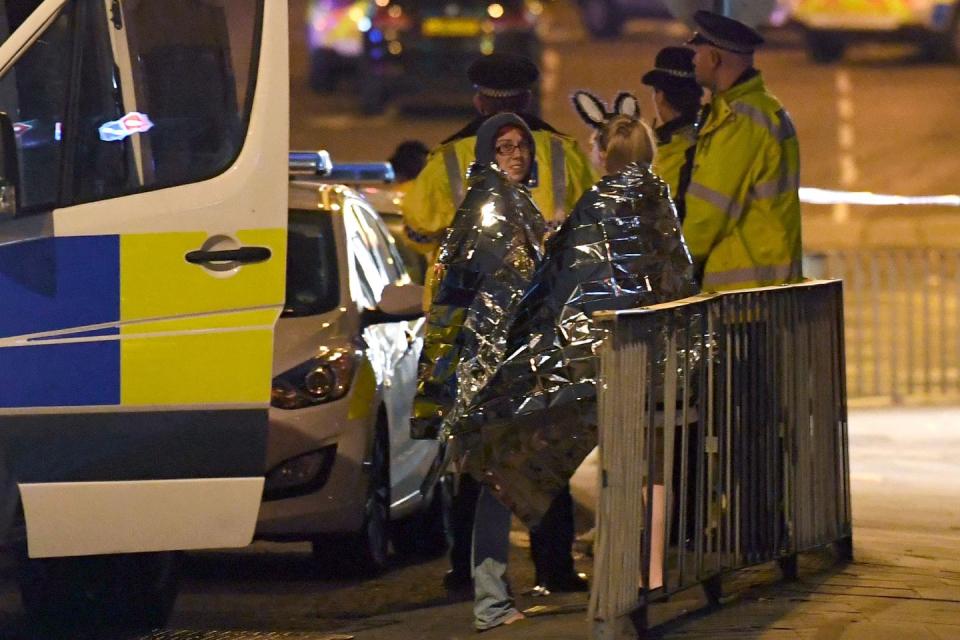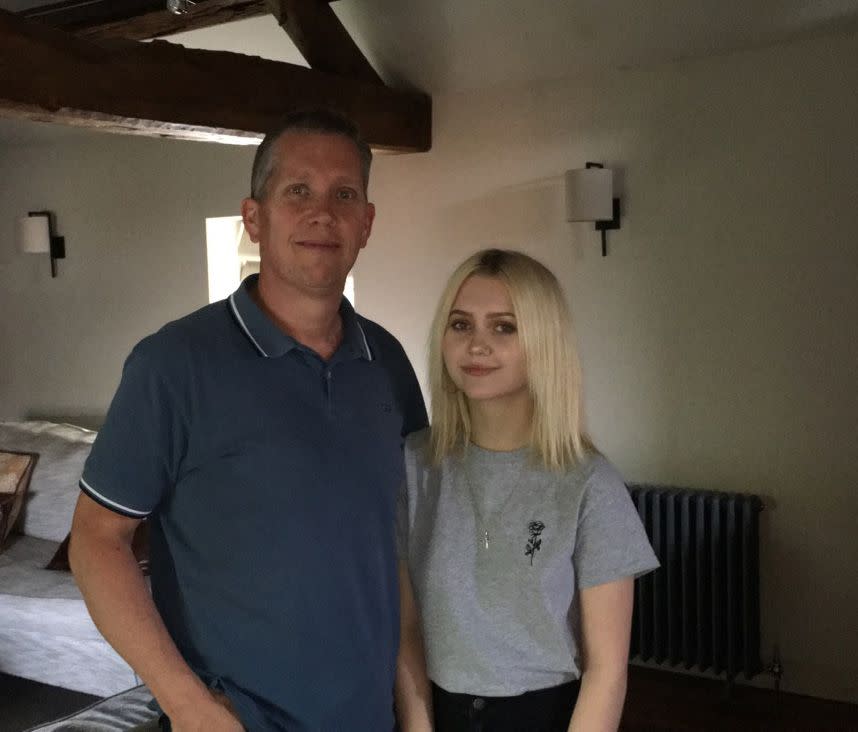"I survived the Manchester Arena terror attack, but was left with PTSD"

May 22, 2017 is a date I will never forget - for all of the wrong reasons.
I was in the middle of my GCSEs and decided to take a break to join my Dad to collect my younger sister and her friend from the Ariana Grande concert at the Manchester Arena.
As I waited in the car, parked below the Arena, my Dad made his way into the foyer to collect her as the concert finished.
Within minutes of him leaving, I heard the explosion. A loud roar echoed through the car park and it wasn’t long before people started flooding down the stairs. Many were injured and others were running from the chaos that was unfolding above. Panic set in immediately as I got out of the car and tried to make my way up to the foyer to find my family, but a police officer stopped me. I couldn't do anything; I was stuck in the carpark, utterly terrified, desperately hoping to see my dad and sister emerge from the crowds.
Finally, after half an hour of endless panic attacks, I spotted my Dad. Thankfully, he wasn’t physically injured. He had been just seconds away from entering the foyer when the bomb detonated, but had witnessed the immediate aftermath of the explosion whilst searching for my sister. He ended up coming to the aid of a seriously injured woman who sadly died before the emergency services arrived.

Unsure of what was happening upstairs, my dad took the decision to leave me in the safety of the carpark while he went to find my sister. The carpark was sectioned off and hours passed as I sat on the ground, surrounded by police cars and paramedics carrying the injured into ambulances. I frantically called other members of my family and friends for comfort, trying to stay calm until a police officer took me to a nearby hotel where my sister and her friend had been escorted, both unharmed and reunited with my Dad.
The enormity of what had happened dawned on me that night. I sat in bed and cried, replaying the events of the day over and over, trying to make sense of it all until I eventually fell asleep, exhausted. The next day I woke with an overwhelming feeling of appreciation and a sense of relief like nothing I had ever felt. I was so thankful to be alive and have my family safe and well with me.
For a lucky few, this may have been the extent of the trauma, but for many - my Dad and I included - symptoms of Post-Traumatic-Stress-Disorder (PTSD) soon ensued.
I was already having counselling for anxiety prior to the Manchester Arena bombing, so I recognised my symptoms quickly worsening in the weeks following the attack. I became dissociated, struggling with how to manage my life, and I began to withdraw from my peers, unable to let them provide me with the support I so desperately needed. Mid-way through my GCSEs I dropped out of school and became a recluse, too scared to leave the house alone. I felt completely lost.
It took me around 20 days to reach a point where I needed medical intervention - far sooner than the 90 day protocol within the NHS guidelines for trauma victims. I sought private therapy and under the recommendation of my therapist, received EDMR (eye movement desensitisation and reprocessing) treatment.
A NICE (The National Institute for Health and Care Excellence) approved treatment, EDMR is used to treat symptoms of psychological trauma. It is recognised by the World Health Organisation as an effective therapy for people who experience traumatic events.

Traumatic memories develop when a distressing event is incorrectly stored in the brain, as if it’s frozen in the body’s system. When a person with PTSD relives these memories, the experience can be felt with the same emotional intensity as if it was taking place again right there in front of them. EDMR helps to unfreeze these memories by stimulating alternative parts of the brain with eye movement, taps or sounds, helping the brain to consolidate the memories and make them seem less vivid and more emotionally bearable than before.
After just a few sessions I saw immediate improvement. My anxiety subsided and I became confident enough to leave the house alone. I got a summer job and eventually went back to my studies. Finally, I felt comfortable enough to talk about the attack with people and with this came a desire to help others in my position access and understand the incredible results EDRM treatment can have. That’s when the idea to start a Trauma Response Network (TRN) developed.
Founded alongside my father, Sean Gardner, in partnership with a team of professional, qualified EMDR therapists, TRN is a not-for-profit service which provides free therapy and support to people affected by mass trauma within 90 days. It provides immediate support through an online platform, followed by face-to-face therapy provided by a network of EDMR across the UK, who are all giving their time for free. We want to provide immediate first aid for people with mental health injuries in the same way that ambulances and hospitals support those with physical wounds.
As a young person, my role as Trustee means I understand how to reach out to a younger audience. The Manchester attack particularly impacted young people, and for that reason, a digital platform seemed like a natural way to communicate. Via any smartphone, tablet or computer, mass trauma victims can now access crucial support via TRN that might not otherwise we available to them.
By using my experience, I want to start a dialogue with young people, as well as engaging with the education system to better under the impact mass trauma and PTSD can have in children and young adults, and encouraging others who experience physiological trauma to seek help fast.
TRN launched a year today, May 22, 2018, one year on from the Manchester attack. Find out more about it here.
('You Might Also Like',)

